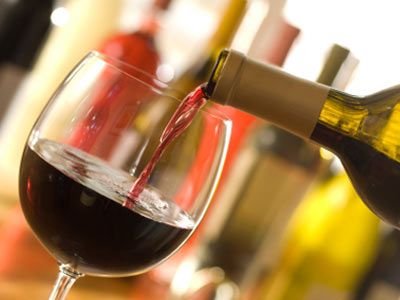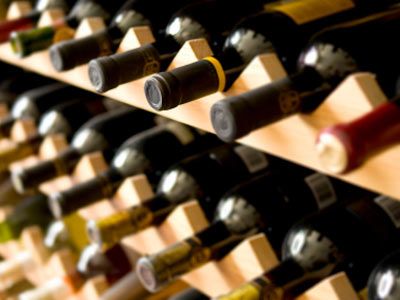Don't think of a sommelier as simply the waiter who serves wine. The best sommeliers use the skills of counselors as they inquire about their customers' needs and desires, teachers as they explain the merits of different types of wine, business executives as they cope with the high costs of some vintages, adventurers as they travel the world and bring home products. Successful sommeliers must be passionate about two things: wine and people. In a sense, a sommelier is a matchmaker, seeking to delight customers with perfect pairings of food and wine.
At the most basic level, a sommelier is a wine steward -- someone who oversees a wine cellar. The word comes from the Middle French soumelier, an official in charge of supplies [source: Merriam-Webster]. That word comes from an even older word for pack animal. While the connection from pack animal to our modern sommelier may seem tenuous, remember that wine was a necessary provision hundreds of years ago (and still is for many people today). Instead of procuring wines for a nobleman's banquet hall, though, most of today's sommeliers work to stock the cellars of fine dining establishments, consulting with the chefs to determine what wines will best complement the food. The sommelier must know how to serve wine, such as what glasses are correct and what temperature is ideal. Most of all, the sommelier must treat guests with respect and hospitality, giving them the feeling that they are on a shared gustatory adventure.
Advertisement
Choosing the correct wines for a meal is just a portion of the modern-day sommelier's duties. He -- for most of the time it is a he, 95 percent of sommeliers are men -- works to create a wine list for the restaurant, deals with suppliers and maintains the restaurant's wine cellar [source: Princeton]. Outstanding sommeliers may become celebrities in the foodie universe -- writing articles on wine, hosting wine tastings, conducting tours of vineyards and wineries, perhaps even earning enough money to stock their own private wine cellars.
In this article, we'll look at how a sommelier gets to be so knowledgeable and how he is able to share his passion with his clients. We'll explore the sommelier's expanding role in a world where a single bottle of wine can cost thousands of dollars. So whether you're a sophisticated oenophile (wine lover) or someone who can't tell a Shiraz from a Chardonnay, read on to discover more about the makings of a sommelier.
Advertisement


